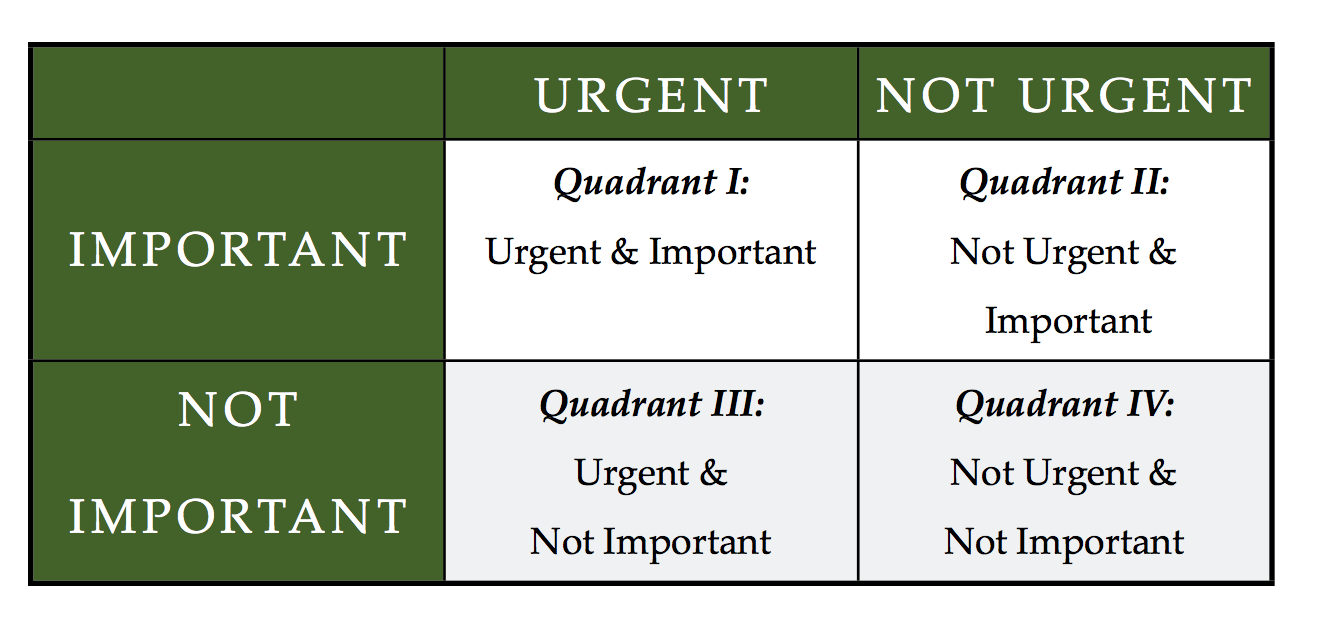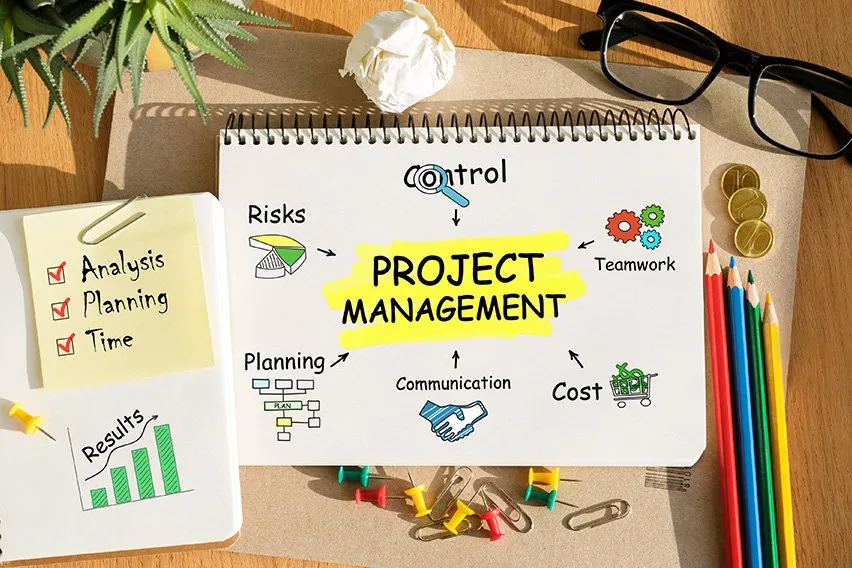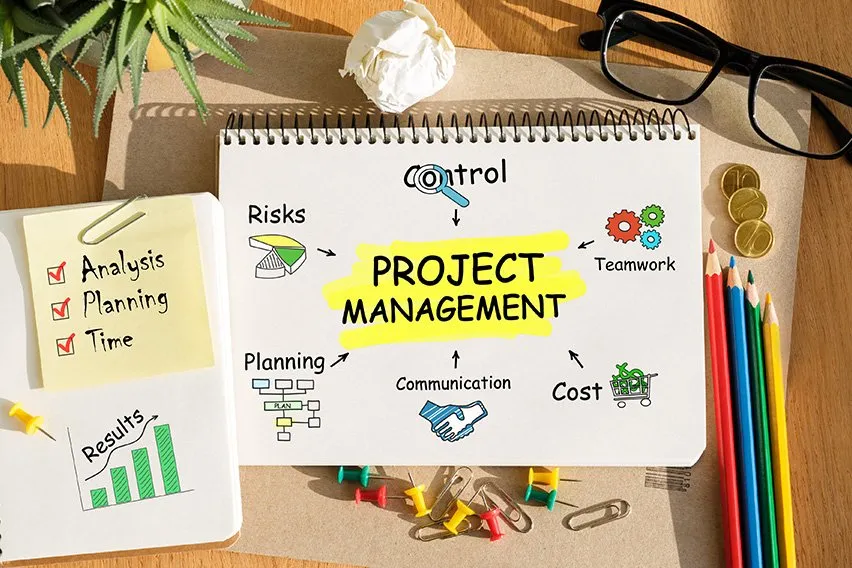Tips for Improving Bad Time Management to Boost Productivity and Reduce Stress

Time is one of the most valuable assets for small business owners and poor time management can negatively impact a company’s work output and revenues. Good time management skills are crucial if you want to grow your business and increase your earnings. Being better at planning your day, prioritizing work tasks and eliminating distractions can help you put your time management back on track. That way, you can focus on delivering better work for your clients and achieving your professional goals.
These topics help you spot the signs of bad time management and provide tips for better managing your time:
What Are the Causes of Poor Time Management?
What Are the Effects of Poor Time Management?
What Are the Causes of Poor Time Management?
Poor time management is usually caused by a failure to plan ahead and evaluate the work that you need to complete. These are the five main causes of poor time management in the workplace:

Poor Planning Skills
It’s important to look at the big picture of what needs to be done and the time available to complete all your work. Poor time management means that you’re not able to see the big picture and plan accordingly. You should take a look at the projects you need to complete for the month, the week and that day. Make sure you set aside enough time to complete all your tasks. With larger projects, it’s helpful to break them down into smaller sections to make the job more manageable, working on it over several days, a few hours at a time.
Failing to Set Priorities
People who fail to manage their time well often fail to prioritize all the tasks they have ahead of them. Once you plan out your calendar to get a better understanding of all the work you have to do immediately as well as your longer-term projects, it’s important to prioritize all your tasks. A straightforward method for prioritizing your work is to use the Covey time management grid. It helps you rank your tasks by how urgent and important they are, using four quadrants:

- Important: These are tasks that relate to your long-term goals, mission and values.
- Urgent: These are tasks that require immediate attention, but are not necessarily important to your long-term success.
You should work to get any urgent tasks done immediately so they’re out of the way, which creates room for you to schedule large blocks of time for working on important projects.
Not Having Clear Goals
When you have clear goals, it’s easier to decide how to best spend your time in order to achieve them. It’s difficult to prioritize your to-do list if you don’t have goals, because everything will seem equally important. You need goals to measure your work against and to determine what to focus on every day. Without goals, you’ll likely strike the easiest things from your to-do list every day, instead of prioritizing what’s truly important for your long-term success. Write down clear goals for your career and your personal life. Set long-term and short-term goals. Make sure you refer back to your list of goals frequently and always set your priorities based on achieving those goals.
Being Unmotivated
When you aren’t motivated to get your work done or you don’t feel passionate about the tasks in front of you, it’s likely you’ll resort to procrastinating. Procrastination is a big drain on productivity and can eat up the time you have available each day to complete important projects. And that means you’ll be left rushing to meet urgent deadlines and the quality of your work will suffer as a result. Reviewing your long-term goals can help improve your motivation. Reflect on what you plan to achieve in the future and think about how your current work can help you reach those goals. Even if you aren’t excited about a project you’re working on, reflecting on how it can help you achieve your goals may be the motivation you need to better manage your time.
Being Bad at Estimating Time
Sometimes, it’s possible for a person to know exactly what they need to do and when it needs to be done, but they have a poor sense of how much time it will take to complete each task. When you underestimate the amount of time needed to finish a project, you’re left in the position of rushing to complete it by the deadline, which can lead to sloppy or inaccurate work. To get better at estimating the time needed to finish your work, it’s important to first understand how you spend your time. Spend a week clocking the amount of time you spend on each task from your to-do list and write it down. You’ll soon get a clearer idea of how much time you need to complete common tasks and you can plan ahead more effectively.
This article will help you learn the importance of good time management, with tips on how to achieve it.
What Are the Effects of Poor Time Management?
Poor time management can affect a person’s business relationships, mental health and their work-life balance. Here are some of the negative effects of poor time management:
Rushing to Complete Tasks
When you manage your time poorly, you may find there’s never enough time in the day to complete everything you need to get done. As a result, you rush to finish projects before their due, which can lead you to make mistakes or produce work that is low quality.
Frequently Being Late
People who are bad at time management don’t just struggle to get their work done, they also have trouble making appointments on time. If you fail to plan ahead or have a poor sense of how long things will take, it’s likely that you’ll frequently be late for meetings and other important events, because you fail to set aside enough time to prepare yourself and travel where you need to be.
Low Productivity
Poor time managers who can’t prioritize work or plan out their day will be less productive than workers with good time management skills. That’s because you’ll likely jump between tasks or be distracted by interruptions that aren’t as important as the project you’re working on. This drains your productivity and slows down your workflow.
Taking on Too Much
People with poor time management skills tend to overextend themselves, accepting projects that they don’t have the time to complete properly, which in turn leaves them overwhelmed. That’s because they don’t have a proper sense of the time they have available or how much time they need to allocate to the tasks they already have on the go.
Missing Deadlines
Poor time management skills often make it difficult or even impossible for you to complete projects on time. That’s because without proper time management, you can’t properly gauge how long a job will take to complete. You’ll be left rushing to finish it, or turning the work in late.

Harming Your Professional Reputation
People with poor time management skills are often unreliable and that can seriously harm their professional reputation. If an employer or client can’t count on you to deliver work on time, produce work that’s of high quality or show up on time for meetings and appointments, your reputation will suffer and you may find it difficult to get new work.
Disatisfaction
The stress and negative feelings associated with poor time management can leave people feeling unsatisfied with their work and unhappy in their jobs. Often, people with bad time management skills will feel burnt out at work and won’t be able to get the motivation needed to perform their job to the best of their ability.
Poor Work-Life Balance
When you properly plan out your day and schedule time for work and personal priorities, you achieve a better work-life balance. But if you waste time procrastinating at work, or if you don’t bother to schedule your time and prioritize tasks, you’ll find that you aren’t able to focus on your personal life and it’s difficult finding time to relax and unwind.
RELATED ARTICLES

 The Importance of Time Management: Tips for Productivity
The Importance of Time Management: Tips for Productivity How to Project Manage?
How to Project Manage? What Are the Project Management Processes?
What Are the Project Management Processes? Why Is Project Management Important? Because It Provides a Detailed Plan
Why Is Project Management Important? Because It Provides a Detailed Plan 16 Tips on How To Organize a Business
16 Tips on How To Organize a Business Improve the Efficiency of Your Employees: 10 Proven Tips for Small Businesses
Improve the Efficiency of Your Employees: 10 Proven Tips for Small Businesses